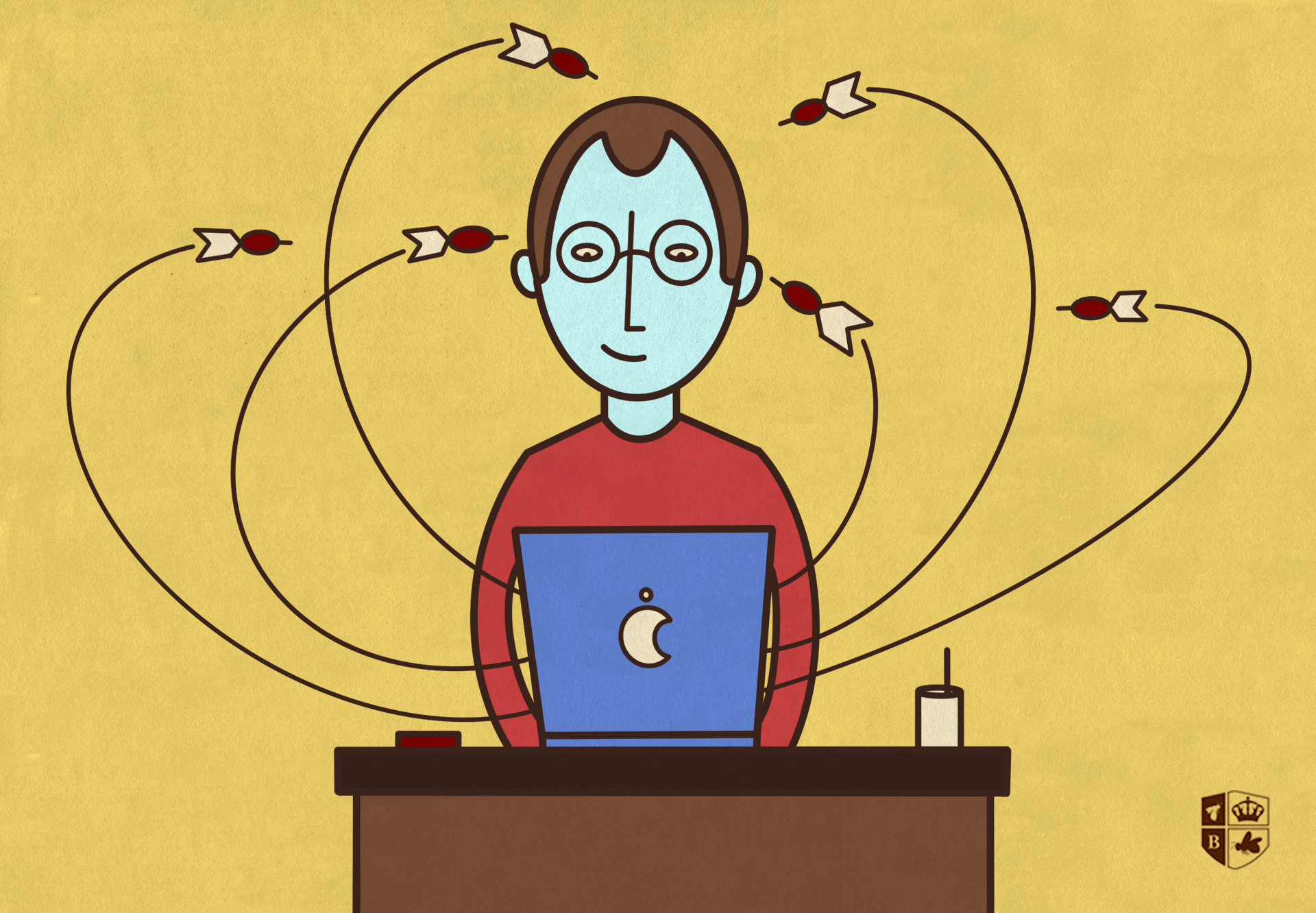Targeted Ads: Friend or Foe?

The other night, I decided to check Instagram one last time before falling asleep. Scrolling, I came across an H&M ad featuring new arrivals that just so happened to be just my style. I clicked through to the site, and less than five minutes later, I was short $125 that I had when I got into bed.
Targeted advertising: powerful and, whether you like it or not, here to stay.
What is Targeted Advertising?
Targeted advertising is, by definition, directing advertisements to specific audiences with specific characteristics based on the product or brand the advertiser is promoting. The first methods of online targeted advertising began as far back as 1995, but even so much as ten years ago, it was little more than a shot in the dark. Context clues revealed just enough information for marketers to make an educated guess at your interests and push the content that fit them. If I visited Zara’s website, I might receive a banner ad for H&M based on my interest in their competitor. Makes sense, right?
The ad I saw the other night is something else entirely.
The New Age of Targeted Ads
From humble beginnings, targeted advertising has since taken over the internet—in fact, for the most part, every ad you see has in some way been tailored especially for you. The business of using personal information to sell to people is not novel, but the latest methods have raised concerns over whether we’ve taken it a step too far.
Take my situation, for example. How exactly did H&M know I would be interested in those particular products?
At the most obvious level, they could have tracked my browsing through the H&M app using clickstream data. A while ago, I mindlessly downloaded and browsed the app, clicking through to several products. It’s possible the ad I received was based on my interest in items I viewed all those weeks earlier.
Or maybe they accessed my social media accounts. Facebook is well known as a controversial contributor to the world of targeted advertising (and I won’t get into it here, but it’s got a lot to do with the very real concern of confirmation bias in politics, a separate but related issue). If I liked, commented or in any way interacted with posts or ads with similar content on Facebook or Instagram, it would be easy for a marketer to tailor an ad for me with H&M’s equivalent of those products.
Or I might have passed by or stepped into an H&M store that day. Using my phone’s tracking information, the brand could have targeted an ad to me as a “gentle” reminder to keep shopping.
And perhaps the most invasive tactic would be if I mentioned to a friend my need to buy new clothes. In that case, applications running in the background of my phone could have recorded that mention and—ta dah!—H&M has just the outfit for me. Applications like Facebook deny using this information and yet if an experience like this has ever happened between you and your devices, you know it’s hard to take them at their word.
Like I said, controversial.
Fair Game or No-Go?
Privacy. That’s what this all comes down to. What is truly private information, and what’s off the table?
Well, for starters, no one is taking this information without your permission. Signing up for a social media account, browsing a brand’s website and owning a smartphone are all voluntary actions, and if you look hard enough, somewhere in the fine print (see Facebook’s, for example) you signed off on the use of your actions and information for marketing purposes.
And for all the fuss about marketers having our information, there’s very little chance of it ever being made public. Just imagine the uproar if Facebook released every bit of data it collected on users—their names, emails, phone numbers, interests like basketball and foreign films, a listing of every ad, site, term and like ever clicked, visited, searched or performed. It wouldn’t be long before major restrictions, or even a total ban, on targeted advertising would occur. Therefore, it’s highly unlikely that anyone but marketers will ever share this information, if for no other reason than they want to keep using it.
But for some, that’s not the point. Most who oppose targeted advertising (for non-political purposes) do so for one of two reasons: either the idea of their information being shared is terrifying, or they find the targeted ads themselves annoying. The former begs the question: if you weren’t comfortable with anyone having this information, why did you share it in the first place? And the latter, well, what are you going to do? Stop using the internet?
Where We Go From Here
I realize I’m offering more questions than answers, but that’s because this isn’t a simple black and white issue. Even after all this, I’m still unsure of how I feel about the lengths targeted advertising can go. I’m not saying I regret giving in to its power and making that H&M purchase. I’m happy, thrilled even, that instead of taking hours out of a Saturday to go shopping, I found and bought everything I wanted with the literal least amount of effort possible.
Do I want to know how marketers knew these particular products from this particular retailer would interest me? Absolutely. But does it actually matter if they’re only using it to make shopping easier? I’m not sure.
So here we are. Our information is out there, and unless we decide to boycott the internet, it isn’t going anywhere. The more I look into the debate surrounding targeted advertising, the more I realize that if marketers truly use our information in the way it is intended—for brands to advertise more relevant content—there’s very little reason for the controversy at all.
At the end of the day, I found clothes that fit my style and purchased them with ease, and H&M got the sale it wanted. Isn’t that what you call a win-win?
Is Your Website An Accurate Reflection Of Your Brand Identity?
Marketing in an Age of Distraction: 4 Key Takeaways from Hit Makers
Trust in Experience Design










